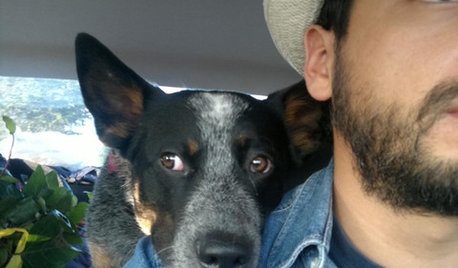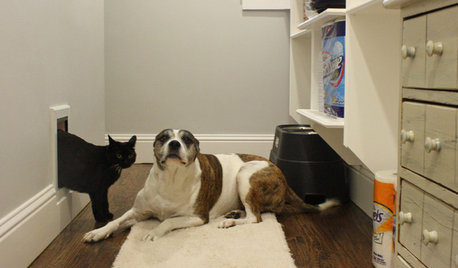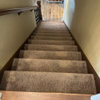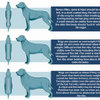Our 13 yo beagle mix mutt was diagnoised with Cushings about 18 months ago... for a variety of reasons, including my husband who grew up on a farm... and thus 'it's only a dog', we opted NOT to medicate her....
Prior to her diagnosis she had developed cataracts and is not blind, but her sight it not the best...
She is always ravenous and thirsty, plus her body is HOT... she typically only lays on the tile floor or hardwood and when she gets up the place where she has been is warm...
Currently, her coat is terrible, huge chunks of fur and a layer or more of skin will come off at times, and then regrow. She does not appear to be in pain, although she has a hugh growth between her front legs, on the left side. I'm guessing this is the tumor they tend to grow with Cushings... when she lays on her side, her fron leg sticks up and out as oppose to dropping down to the floor with the other leg.
She gets VERY winded when out walking. Our drive is 500+ feet long, when she walks with me in the morning to get the paper, she will need to lay down to rest for a few minutes about half way back up the drive. She's never been an "active" dog, much more the laid back dog. She was still getting up to take the children to their school buses last spring and to meet them when they returned (how is it they KNOW about 5 minutes prior to that bus arriving to do the 'dance' at the door???)
She still gets excited to see friends arrive, or us return if we've been out...
She is starting to become more and more incontinent... although she rarely has accidents in the house unless we've been gone for longer than normal during the day. As long as we put her out at bedtime she typically makes it through the night without waking us to go out.
She no longer comes up or down the house stairs that are not carpeted, menaing she does not come up to sleep under my bed anymore, but she will go up and down the deck steps (about 8).
Since the DH doesn not want to medicate her, and the children are openly hostile to the idea of taking her to the vet since she does not appear to be in pain, I'm in a real quandry... am I being fair to her by not putting her down? Does she really have any qualtiy of life? I know she enjoys seeing us and being with us, she still gets up on the sofa with us when we're sitting there... and is right with us when we're doing things outside.
comments???













mitchdesj
dobesrule
Related Discussions
Meghane and others, help: Cushings, Hypothyroid & kidney failure.
Q
need helpful thoughts/comments on my labs poor health
Q
Bon, re earthquakes
Q
No Cushings for Emily
Q
cindyb_va
annzgw
cindyxeus
mazer415
cindyxeus
plumbly22Original Author
cynthia_gw
dobesrule
cindyxeus
cindyxeus
mitchdesj
Meghane
mitchdesj
debraf
trekaren
mitchdesj
mitchdesj
mitchdesj